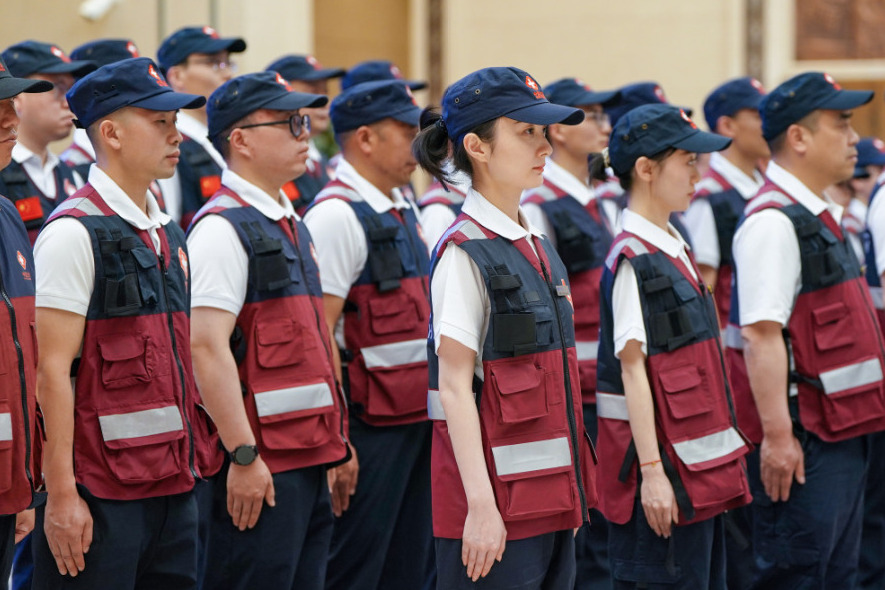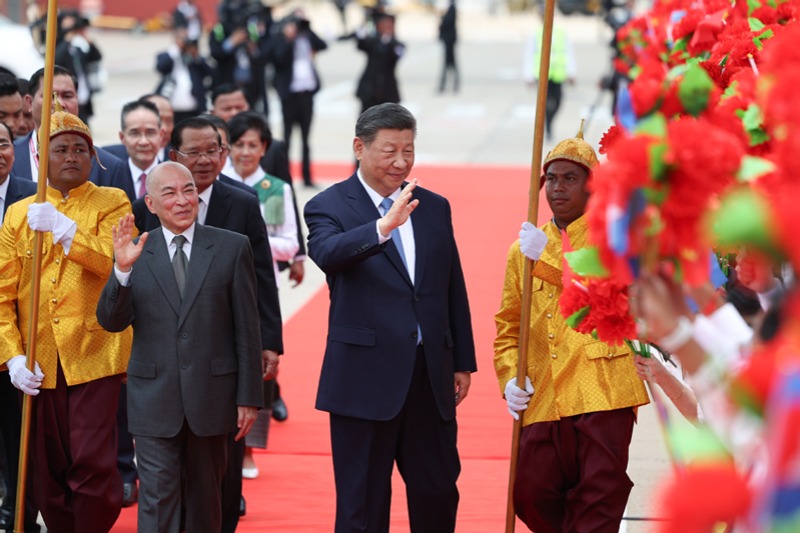Makeshift hospitals point the way
World follows example of temporary facilities, which were Wuhan's 'life vessels' at peak of outbreak


Feng Bangli, a resident of Wuhan, Hubei province, which had been the epicenter of the novel coronavirus outbreak on the Chinese mainland, began to have a fever at the end of January and suspected he had been infected with the virus.
Having tried in vain several times to be admitted to a hospital, he gave up and stayed at home, taking drugs prescribed by doctors.
"There were so many patients waiting to see doctors at every hospital, and it was not possible for me to get a bed," he said. He could not be tested, either, due to a shortage of nucleic acid testing kits at that time.
"I called the staff at Chuanglun community where I live. They just agreed to try their best to help," said Feng, a printing house employee.
A week later, Feng was sent by the community staff to a hotel in the city's Wuchang district that was designated for isolation of patients suspected of being infected. He stayed there for three days, receiving a test for the first time and testing positive for the virus. Then he was sent to a makeshift hospital for treatment.
"Without such makeshift hospitals, many COVID-19 patients like me may never have found a bed," said Feng, who has recovered and was discharged from Wuchang Fangcang Hospital, a temporary hospital transformed from a sports stadium, at the end of February after staying there for 12 days.
In total, more than 12,000 COVID-19 patients in Wuhan, the Chinese city hit hardest by the epidemic, received treatment and care at 15 temporary hospitals, which were converted from exhibition halls, sports stadiums and warehouses. This means these hospitals, which mainly receive patients with mild symptoms, accommodated one in every four confirmed COVID-19 patients in the city, said Ma Xiaowei, minister of the National Health Commission.
"Building temporary hospitals was a key decision made in the critical moment when Wuhan was facing a formidable task of epidemic control, and it has played an indispensable role in both prevention and treatment of the disease," he said.
- 'Yichun' train takes tourists on Chinese cinematic journey
- 7th batch of emergency humanitarian aid supplies by Chinese govt arrives in quake-hit Myanmar
- Ecological tea garden in Fujian
- China's new cargo spacecraft to make public debut
- Weifang's intl kite festival draws 257 teams worldwide
- AG600 seaplane receives type certification





































